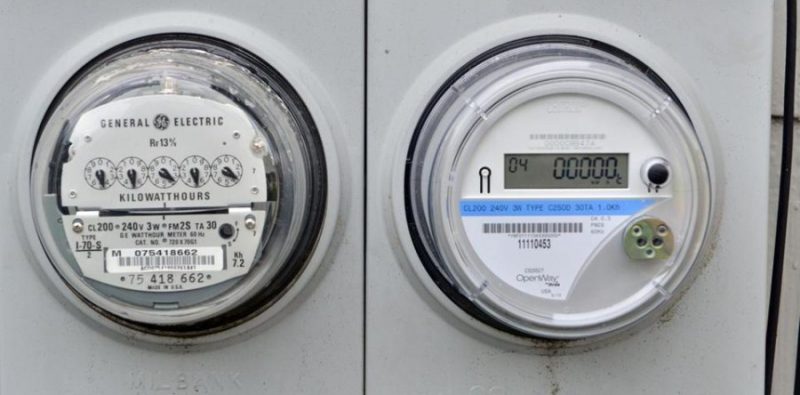
How Data Center Operators Can Avoid Energy Price Hikes This Winter
Energy consumption is one of the largest operating expenses for a data center, contributing to nearly 50 percent of total operating expenses. Due to last winter’s “polar vortex” that caused a deep freeze in much of the U.S., many large energy consumers in unregulated markets saw their energy prices quadruple. In fact, we have seen a tremendous amount of volatility in energy prices over the last decade.
Excess Logic continues reposting interesting articles. We’d like to pay your attention how important to recycle e-waste and used computer, lab, R&D, electronic equipment instead of disposing them into a dumpster.
Data center operators and owners can minimize the impact of unpredictable energy markets by better understanding the markets and establishing smart energy procurement strategies. Below is background on energy pricing trends, factors likely to impact future pricing, and proactive strategies for procuring energy in an unpredictable market.
How to recycle unwanted data center’s equipment: servers, switchers, routers
Factors Impacting Pricing
There are a number of factors impacting natural gas and electric rates, including:
1. Natural Gas Storage: In the beginning of 2014, natural gas stockpiles hit the lowest level since 2004 as a result of cold weather and winter storms. Due to the mild weather this past summer and so far this winter, natural gas storage is slightly above last year and about 260 billion cubic feet behind the five-year average.
What do these numbers mean for energy pricing? A cold winter will likely move this market higher. If we exit the 2014-2015 heating season with low natural gas storage levels as we did this past year, there will be upward pressure on the market through the 2015 season.
2. Retirement of Coal-Fired Power Plants: Natural gas generation of electricity continues to grow as coal-fired power plants are retired. This has created a permanent increase in demand for natural gas. A few key statistics are:
- Natural gas has become the fuel of choice for electric generation, especially as new EPA standards impact 1,400 coal and oil units.
- Scheduled coal plant retirements between 2013 and 2020 will result in increased natural gas generation.
- Approximately one-third of electricity in the U.S. is generated using natural gas. Another one-third is coal and the last one-third is comprised of all other (nuclear, renewable, etc.).
As coal-fired power plants are retired, the increased base load natural gas demand for electric generation will increase price sensitivity.
3. Natural Gas Exporting (Liquid Natural Gas): In 2015-2016, large energy companies will begin exporting natural gas to Asia and Europe where they can achieve prices roughly triple the price in the U.S. This will cause a longer term change to the supply-demand balance. It will also begin what could be a transition from a North American natural gas market to a global natural gas market (similar to oil).
Worldwide Natural Gas Prices – Snapshot as of June 2014:
- United States: $3.80 /dth
- Europe: $7.80 /dth
- Asia: $14.00/dth
- South America: $15.00/dth
Where Do Prices Go From Here?
The severe winter last year caused a spike in spot prices for electric and natural gas. In January 2014, market prices for natural gas were in excess of $20/dth in many of the Northeast markets. These increased gas prices pushed electric rates higher, with customers in New Jersey and surrounding markets seeing average electric prices for January 2014 over $0.20/kwh.
Prices stabilized this summer, as the weather was mild across most of the country, and gas storage levels improved. In general, higher load factor customers in Texas are now able to fix a price for a multi-year term in the range of $0.04/kwh – $0.05/kwh. For higher load factor clients in New Jersey, this range is $0.082/kwh – $0.092/kwh.
In the coming months, weather will be a main driver of energy prices. If a cold winter results in upward pressure on natural gas prices, then electric rates will also likely increase.
Longer term, we see demand for natural gas increasing due to coal plant retirements and increased natural gas exports. This increased demand will put upward pressure on both natural gas and electric prices.
Proactive Management in an Unpredictable Market
Energy procurement should not be an annual task, or something reviewed just prior to the expiration of a supply contract. This is an ongoing process which, if managed correctly, can lead to positive bottom line results despite the extremely volatile market.
There are two important strategies that can be employed when structuring an energy supply agreement to limit one’s exposure to price run-ups or spikes:
1. A Fixed Price Agreement: This is a common strategy that provides a customer with price and budget certainty. In this case, usage becomes the only variable that needs to be monitored and managed.
2. A “Block and Index” Structure: Here, a customer can fix all or a portion of their price. The pricing can be locked in blocks or percentage levels at different times. While this requires more management and oversight, it allows a client to dollar cost average their price, similar to what an investor would do with a stock purchase.
Given the energy factors discussed above, plus the projected cold temperatures for February, we could be faced with rising rates in the future. As a result, businesses need to look at the importance of proactively managing their energy procurement now in order to reduce the potential negative exposure that could be coming down the road.
Author Tim Comerford
Permanent article address